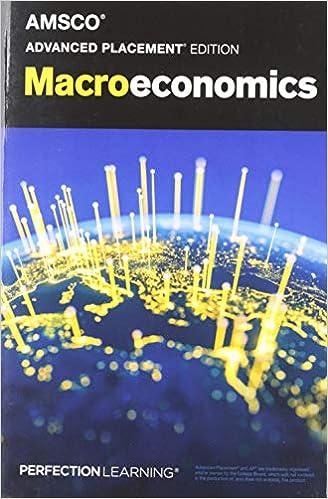Question
2) Economist Jeffrey Sachs does a cross-country regression by regressing economic growth on the incidence of malaria while controlling for education, income level, macroeconomic policy,
2) Economist Jeffrey Sachs does a cross-country regression by regressing economic growth on the incidence of malaria while controlling for education, income level, macroeconomic policy, etc. He finds that countries with malaria grow more slowly. a. Is this a causal relationship? Why or Why not? (Give an alternative interpretation to his regression results.) b. Generally speaking, what do the coefficients of the right hand side controls tell us? It will help to write down the regression equation. Do you think the control variables resolve joint determination problems? Explain briefly. c. Let's assume that education jointly determines income and malaria incidence and economic growth. In this case, what does the coefficient of education tell us? Would this cause us to over or underestimate the true relationship between malaria on income? Why? (hint: think of possible ways education jointly increases/decreases income and malaria). Next, assume that education decreases malaria and increases income. Explain how/why the regression might overestimate the effect of malaria on income.
Step by Step Solution
There are 3 Steps involved in it
Step: 1

Get Instant Access to Expert-Tailored Solutions
See step-by-step solutions with expert insights and AI powered tools for academic success
Step: 2

Step: 3

Ace Your Homework with AI
Get the answers you need in no time with our AI-driven, step-by-step assistance
Get Started


